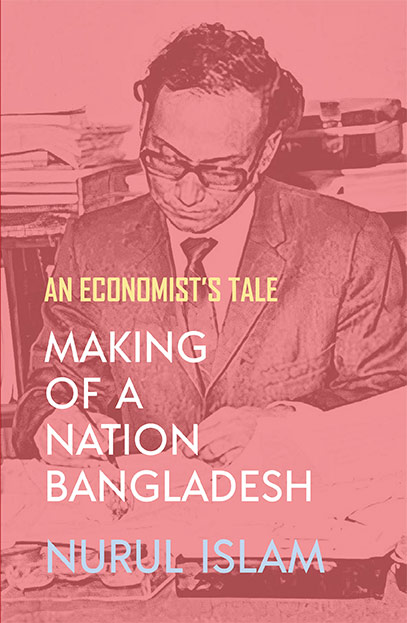Making of a Nation Bangladesh: An Economist's Tale
An Economist's Tale
https://uplbooks.com/shop/9789845061254-making-of-a-nation-bangladesh-an-economist-s-tale-3040 https://uplbooks.com/web/image/product.template/3040/image_1920?unique=238ebc3
| Language: English |
Tags :
Book Info
Professor Nurul Islam provides a penetrating analysis of the evolving struggle of the Bengalis with the Pakistan government's policies on economic issues that led to the birth of Bangladesh. He also provides an insight into the important landmark economic policy issues during Bangladesh's formative years. The book begins by providing for the first time an insider's view of many little-known aspects or subjects of economic debates and negotiations with Pakistan that caused the great divide between East and West Pakistan. He also examines in great detail the far-reaching implications of Awami League's Six Point Programme, which was not fully understood by many at that time. In his capacity as the Deputy Chairman of the first Bangladesh Planning Commission he was not only intimately associated with but also had a unique insight into both the underlying rationale, the process of decision making and of governance in those formative years. The interpretation or assessment of some of these policy issues and developments remains a subject of considerable controversy. Professor Islam's analysis is seen as a major contribution to the debate which attempts to fill many gaps in facts and interpretation. In the concluding part of the book, he discusses a few policy issues of contemporaneous importance for Bangladesh in the light of the past and for the purposes of the future. In his analysis of the major issues and incidents, he has drawn on his personal notes as well as on many hitherto unpublished reports, documents and communications, a few of which are reproduced in the book. The book will be particularly useful for students, teachers and policymakers as well as those interested in the political economy of nation-building.

Nurul Islam
Professor Nurul Islam is a leading development economist who combines academic excellence with policymaking at the highest level. He has an illustrious career spanning over three decades - Professor at Dhaka University, Founder-Director of Bangladesh Institute of Development Studies, and Deputy Chairman of the First Planning Commission laying the economic foundations of independent Bangladesh. Later, as he moved on to the world stage he became Assistant Director General of the UN Food and Agriculture Organisation and is currently Emeritus Fellow at the International Food Policy Research Institute in Washington DC. Educated at Harvard where he received his Ph.D. in Economics, he held visiting appointments at various universities abroad including Oxford and Yale and was Chairman of the UN Committee on



